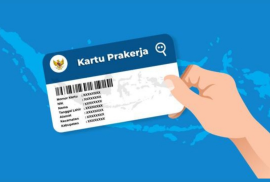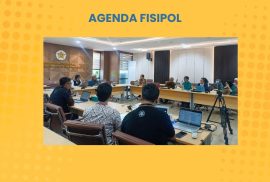Yogyakarta, 7 August 2025 — The series of events under the 2025 PIONIR Society of FISIPOL UGM officially concluded with a Consolidation Forum, Public Action Simulation, and Inauguration Ceremony. Quoting Tan Malaka, “Idealism is the final luxury possessed by youth,” this spirit was instilled throughout the open discussions and public orations.
New students were invited to engage in critical conversations on two pressing issues within Indonesia’s socio-political landscape: the commercialization of higher education and freedom of expression. Beyond simply voicing their opinions, students were encouraged to understand that public oration is not merely about speaking loudly, but rather about delivering critiques that are sharp, well-argued, and substantive.










